- Home
- Dan Simmons
Phases of Gravity Page 8
Phases of Gravity Read online
Page 8
Baedecker remembered standing on the moon, shielding his already-shielded visor with a gloved hand and searching the black sky for a single star. There were none. Only the white glare
of the cratered surface and the light from the inconsequential crescent that was the earth had pierced the gold-tinted visor.
Ackroyd parked behind a police car, and the two men joined the crowd filing into the high school gymnasium. Baedecker immediately recognized the wood and varnish smell of the place. He had dribbled basketballs where the folding chairs were set in even rows. The platform that he was ascending had been the stage for his sixth-grade operetta. He had been cast as Billy the Orphan who, in the final act, was revealed to be the Christ child come again to check on a family's charity. Baedecker's father had written from Camp Pendleton to say that it had been the most colossal case of miscasting in the history of the theater.
He sat with Ackroyd on gray metal chairs as Mayor Seaton quieted the crowd. Baedecker estimated that there were three to four hundred people filling the chairs and wooden bleachers. More people milled in the open doorways at the back. The sound of the merry-go-round music came in clearly on the humid air.
". . . of the Apollo Program. Our voyager to the moon. One of America's true heroes and Glen Oak's very own son . . . Richard M. Baedecker!"
Applause filled the gym and momentarily drowned out the midway's music. As Baedecker rose to his feet, Bill Ackroyd gave him a pat on the back that almost sent him to his knees. He recovered, shook the mayor's hand, and faced the crowd.
"Thank you, Mayor Seaton and members of the city council. I'm happy to be back in Glen Oak tonight." There was another round of applause and in the few seconds before he resumed speaking Baedecker realized that he was quite drunk. He had no idea what he would say next.
Baedecker had learned how to lessen his fear of audiences by slightly unfocusing his eyes when he spoke. Crowds became less formidable when they blurred into a colorful sea of faces. But this night he did not do this. Baedecker looked earnestly at the crowd. He saw Stinky Serrel in the second row waving at him with little motions of her hand below her chin. Her husband, still in his softball uniform, was dozing in the chair next to her. Phil Dixon and his family sat three rows farther back. Jackie Ackroyd sat on the aisle of the front row. Next to her, Terry was kneeling on a chair with his back to Baedecker, talking loudly to an older boy. He could not see Carl Foster or Galen, but he sensed that they were there. In the seconds of silence after the applause died away, Baedecker felt a sudden rush of affection for everyone in the crowd.
"The exploration of space has been rewarding to scientists in terms of its payoff in pure knowledge and exciting to engineers because of the technological challenge it has posed," Baedecker heard himself begin, "but many people do not know how tremendously rewarding it has been for the average American in terms of spin-offs, which have improved the quality of all of our lives." Baedecker relaxed as he spoke. He had gotten through the original five-month NASA public relations tour after the mission only by memorizing half a dozen set speeches. What he was starting into now—although updated by him—was the NASA-written piece that he always thought of as his Teflon Speech.
". . . not only those wondrous materials and alloys, but as a result of the NASA-sponsored advances in electronics we can enjoy the benefits of such things as pocket calculators, home computers, and relatively inexpensive video cassette recorders."
Sweet Jesus, thought Baedecker, we mounted the greatest collective effort of labor and imagination since the pharaohs built the pyramids so we can sit home and watch Debbie Does Dallas on our VCRs.
Baedecker paused, coughed once, and resumed. "Communication satellites . . . some of which were launched by the space shuttle . . . tie our world together in a web of telecommunications.
When Dave and I walked on the moon sixteen years ago, we brought along a new, lightweight video camera, which was the prototype for many of today's home video units. When Dave and I drove the Lunar Rover six miles and looked down into a canyon which no human eye had ever been able to see clearly before, our explorations were broadcast live across two hundred forty thousand miles of space."
And were rejected by the networks because they would have interrupted their daytime programming, thought Baedecker. The Apollo Program died young because it had poor production values and a banal script. After Apollo 11 everything looked like reruns. We couldn't compete with Days of Our Lives.
". . . at that time no one could have foreseen all of the spin-offs created by the project. Our goal was to explore the universe and expand the frontiers of knowledge. Our effect was to create a technological revolution, which, in turn, led to the spin-offs, which have changed the life of the average American consumer."
Joan spinning off from a marriage that had been an illusion for years. Scott spinning off to India, dedicating his life to finding eternal verities in a culture that can't master flush toilets.
"When Dave, Tom, and I flew Discovery to the moon, the average business computer cost twelve thousand dollars," said Baedecker. "Today, thanks to the spin-offs of our space program, a home computer costing twelve hundred dollars can do the same job. And do it better."
Dave Muldorff spinning off to become a congressman from Oregon. Baedecker remembered a white figure moving lightly across the lunar plain, his suit radiant in a corona of sunlight, leaving footprints in the dust that would be fresh when he and Baedecker would be dust, America not even a memory, the human race forgotten. Fund-raising rallies. Dave, whose NASA career was cut short by the unpardonable sin of bringing a Frisbee to the surface of the moon and not being repentant.
". . . and hospitals today can use this kind of device to monitor a patient's vital signs . . ."
Tom Gavin spinning off to his new fundamentalist realities. If God spoke to you while you were up there alone in the command module, Tom, why didn't you tell Dave and me during the flight back? Or mention it during debriefing? Why wait all those years to announce it on the PTL Club?
". . . the thermal tiles and other materials developed for the shuttle will have hundreds of unforeseen uses in commercial and daily life. Other possibilities . . ."
The Challenger exploding, pieces spinning off toward the waiting sea. The orange hell-glow of burning hypergolics. Fragments falling, falling.
". . . benefits might include . . ."
Baedecker's wife and son spinning off to other lives, other realities.
". . . might include such things . . ."
Richard E. Baedecker spinning off . . .
". . . such things as . . ."
Spinning off to . . .
". . . such things as . . ."
To what?
Baedecker stopped speaking.
A group of farmers who had been laughing at unheard jokes in the back of the gym stopped talking in the sudden silence and turned toward the stage. The boy, Terry Ackroyd, still kneeling on his chair, stopped talking to his friend and turned his head toward Baedecker.
Baedecker gripped the sides of the podium tightly to keep from falling. The large room pitched and yawed in his vision. A cold sweat broke out on his forehead and lower back. Baedecker's nerves prickled in his neck.
"You all saw the shuttle explode," Baedecker said thickly. "Again and again on videotape. It was like a recurrent dream, wasn't it? A nightmare we couldn't shake." Baedecker was amazed to hear these words. He had no idea what he would say next.
"I was there with NASA when the STS . . . the shuttle system . . . was being designed," he said. "Every step of the way there was a compromise because of money . . . or politics . . . or bureaucracy . . . or sheer corporate stupidity. We killed those seven people as surely as if we had put guns to their heads."
The faces turned toward Baedecker were as translucent as water, as unsteady as candle flames.
"But that's the way evolution works!" cried Baedecker, his mouth too close to the microphone. "The stack . . . the orbiter and external tank and SRBS and eve
rything, looks so beautiful, so advanced, so technologically perfect . . . but it's like us, an evolutionary compromise. Right next to the miracle of the heart or the wonder of the eye, there's some artifact of stupidity like the vermiform appendix just waiting to kill us."
Baedecker swayed slightly and stared at his audience. He was not getting his point across, and it was suddenly very important that he do so.
The silence expanded. The sounds of Old Settlers receded. One person near the back of the gym coughed and the noise echoed like cannonshot. Baedecker could no longer focus on faces. He squeezed his eyes shut tightly and clung to the podium.
"What happened to the fish?"
He opened his eyes. "What happened to the fish?" he asked again urgently and raised his voice. "The lungfish. Those first ones to crawl out of the sea. What happened to them?"
The silence of the crowd shifted in tone. A tension filled the room. Somewhere outside a girl on one of the rides screamed in mock terror. The cry faded and the audience inside waited.
"They left prints in the mud and then what?" asked Baedecker. His voice sounded very strange even to him. He tried to clear his throat and then he spoke again. "The first ones. I know they probably just gasped on the beach for a while and then went back to the ocean. When they died, their bones joined all the others in the ooze. I know that. I don't mean that." Baedecker half turned toward Ackroyd and the others as if asking for help and then looked back at the crowd. He lowered his head a moment but quickly lifted it to stare at faces. He recognized no one. His eyes would not focus properly. He was afraid that his own face was wet with tears but he could do nothing about that.
"Did they dream?" asked Baedecker. He waited but there was no answer.
"You understand, they'd seen the stars," said Baedecker. "Even while they were lying there on the beach, gasping for breath, wanting only to go back to the sea, they had seen the stars.
Baedecker cleared his throat again. "What I want to know is . . . before they died . . . before their bones joined the rest . . . did they dream? I mean, of course they dreamed, but were they different? The dreams. What I'm trying to say . . ." He halted.
"I think . . ." began Baedecker and stopped again. His hand banged against the microphone as he turned quickly. "Thank you for the homecoming today," said Baedecker but his head was turned away, the microphone was askew, and no one heard him.
A little before three A.M., Baedecker was quietly and thoroughly sick. He was thankful for the bathroom off the guest bedroom. Afterward he brushed his teeth, rinsed his mouth out, and crossed the basement to Terry's empty room.
The Ackroyds had turned in hours earlier. The house was silent. Baedecker closed the door to block any hint of light and waited for the stars to come out.
They did. One by one they emerged from the darkness. There were at least several hundred of them. The sunlit hemisphere of the earth, three diameters above the lunar peaks, also had been swabbed with phosphorescent paint. The moon's surface glowed in a gentle bath of reflected earthlight. The stars burned. Craters threw impenetrable shadows. The silence was absolute.
Baedecker lay back on the boy's bed, careful not to muss the spread. He thought about the coming day. After he got to Chicago and registered, he would look up Borman and Seretti. With any luck they could get together that night for an informal dinner where they could kick around the Air Bus deal before the convention really got under way.
After dinner, Baedecker would call Cole Prescott at his home in St. Louis. He would tell Prescott that he was resigning and work out the details of the quickest transition possible. Baedecker wanted to be out of St. Louis by early September. By Labor Day if he could.
Then what? Baedecker raised his eyes to the earth shining in a star-deepened sky. The swirls of cloud masses were brilliant. He would trade in his four-year-old Chrysler Le Baron for a sports car. A Corvette. No, something as sleek and powerful as a Corvette but with a real gearbox. Something fast and fun to drive. Baedecker grinned at the profound simplicity of it all.
Then what? More stars were becoming visible as his eyes adapted. The boy must have worked for hours, thought Baedecker and stared at the ceiling, seeing distant galaxies resolving themselves in great, glowing strands of stars. He would head west. It had been many years since Baedecker had driven across the continent. He would visit Dave out in Salem, spend some time with Tom Gavin in Colorado.
Then what? Baedecker raised his wrist and let it lie on his forehead. There were voices in his ears, but the background interference made them unintelligible. Baedecker thought of gray headstones in the grass and of dark forms scurrying between the rusted springs of a '38 Hudson. He thought of sunlight striking Glen Oak's water tower and the terrible beauty of his newborn son. He thought of darkness. He thought of the lights of the Ferris wheel turning soundlessly in the night.
Later, when Baedecker closed his eyes and slept, the stars continued to burn.
Part Three
Uncompahgre
"Are we all set to climb the mountain?"
Richard Baedecker and the other three hikers stopped in their last-minute adjustments of backpacks and hip belts to look up at Tom Gavin. Gavin was a small man, barely five foot seven, with a long face, short-cropped black hair, and a piercing gaze. When he spoke, even to pose a simple interrogative, his voice seemed propelled up out of his small frame by a wire-taut sense of urgency.
Baedecker nodded and bent over to shift the weight of his pack. He tried again to buckle the padded hip belt, but it would not go. Baedecker's stomach was just ample enough, the belt just short enough, that the metal teeth on the buckle would not secure on the webbing.
"Damn," muttered Baedecker and tucked the belt back out of sight. He would make do with the shoulder straps, although already the weight of the pack was plucking a cord of pain on some nerve in his neck.
"Deedee?" asked Gavin. His tone of voice reminded Baedecker of the thousands of checklists he and Gavin had read through during simulations.
"Yes, dear." Deedee Gavin was forty-five, the same age as her husband, but she had entered that ageless state which some women disappear into between their twenty-fifth and fiftieth birthdays. She was blond and bantam-thin, and although she was constantly animated, her voice and movements held none of the sense of tightly controlled tension that marked her husband's demeanor. Gavin usually appeared to be slightly frowning, as if preoccupied or mentally wrestling with some internal conundrum. Deedee Gavin showed no such signs of intellectual unrest or activity. Of all the various astronauts' wives Baedecker had known, Deedee Gavin had always seemed the least well matched. Baedecker's ex-wife, Joan, had predicted the Gavins' imminent divorce almost twenty years earlier after the first time the two couples had met at Edwards Air Force Base in the spring of 1965.
"Tommy?" asked Gavin.
Tom Gavin Jr. looked away and nodded tersely. He was wearing tattered denim shorts and a blue-and-white Campus Crusade for Christ T-shirt. The boy was already over six feet tall and still growing. At the moment he carried anger like a palpable thing, weighing on him like a second backpack.
"Dick?"
"Yo," said Baedecker. His orange backpack held a tent and rain fly, food and water, extra clothes and rain gear, backpack stove and fuel, mess gear and first-aid kit, rope, flashlight, insect repellent, a Fiberfill sleeping bag and ground cloth, foam pad, and an assortment of other trail necessities. He had weighed it on the Gavins' bathroom scale that morning and it checked out at twenty-eight pounds, but Baedecker was sure that someone had surreptitiously added a few bowling balls and an extensive rock collection to the load since then. The pinched nerve on his neck felt like an overtightened guitar string. Baedecker idly wondered what kind of noise it would make when it snapped. "Ready to go," he said.
"Miss Brown?"
Maggie took a last tug at her pack's shoulder strap and smiled. To Baedecker it seemed that the sun had just come out from behind a cloud even though the Colorado sky had been cloudless all day. "All se
t," she said. "Call me Maggie, Tom." She had cut her hair since Baedecker had seen her in India three months earlier. She wore cotton shorts and a soft-looking plaid shirt open over a green halter top. Her legs were tan and muscular. Maggie carried the lightest load of any of them, not even a frame pack, just a blue canvas daypack with her goose-down sleeping bag tied beneath it. While everyone else wore massive hiking boots, Maggie wore only her short-topped
Nikes. Baedecker half expected her to float away like an untethered balloon while the rest of them continued to trudge along like deep-sea divers.
"Okay, then," said Gavin, "let's get going, shall we?" He turned and led them away from their parked car at a brisk pace.
Above the meadow the road became something less than a jeep trail as it switched back and forth through stands of ponderosa pine, Douglas fir, and occasional aspen groves. Deedee rushed to keep up with her husband. Maggie fell into an easy gait a few paces behind. Baedecker worked hard to keep up, but at the end of the first three hundred yards of hill he was red-faced and staggering, his lungs laboring to find more oxygen than was available in the thin air at nine thousand feet. Only Tom Jr. lagged farther back, occasionally throwing a stone at a tree or carving something into an aspen with the sheath knife from his belt.
"Come on, let's keep up the pace," called Gavin from the next switchback. "We're not even on the trail yet."
Baedecker nodded, too winded to speak. Maggie turned around and bounded back downhill toward him. Baedecker mopped his face, shifted the pack against the sweat-soaked shirt on his back, and wondered at the sheer insanity of anyone going downhill when they would just have to turn around and go back up again.
"Hi," she said.

 The Terror
The Terror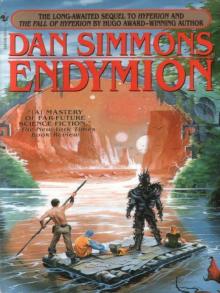 Endymion
Endymion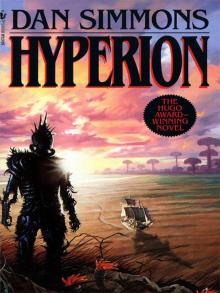 Hyperion
Hyperion The Crook Factory
The Crook Factory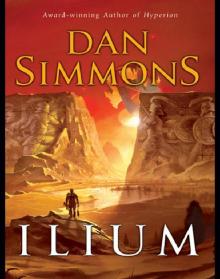 Ilium
Ilium Phases of Gravity
Phases of Gravity Hardcase
Hardcase Fires of Eden
Fires of Eden Children of the Night
Children of the Night Muse of Fire
Muse of Fire Drood
Drood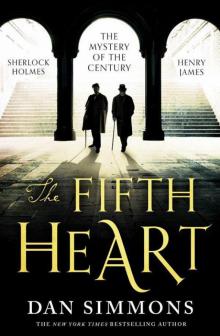 The Fifth Heart
The Fifth Heart Carrion Comfort
Carrion Comfort The Hollow Man
The Hollow Man Summer of Night
Summer of Night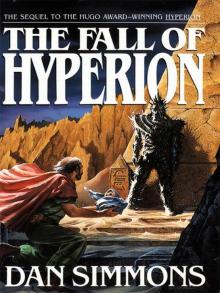 The Fall of Hyperion
The Fall of Hyperion Black Hills
Black Hills A Winter Haunting
A Winter Haunting Hard Freeze
Hard Freeze Prayers to Broken Stones
Prayers to Broken Stones Hard as Nails
Hard as Nails The Guiding Nose of Ulfant Banderoz
The Guiding Nose of Ulfant Banderoz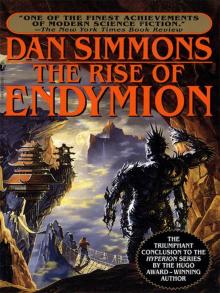 The Rise of Endymion
The Rise of Endymion Orphans of the Helix
Orphans of the Helix Lovedeath
Lovedeath Olympos
Olympos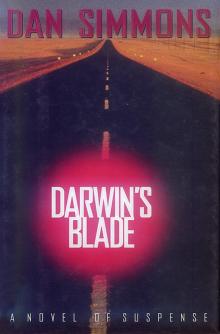 Darwin's Blade
Darwin's Blade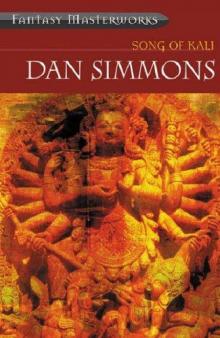 Song of Kali
Song of Kali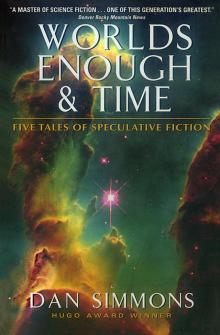 Worlds Enough & Time: Five Tales of Speculative Fiction
Worlds Enough & Time: Five Tales of Speculative Fiction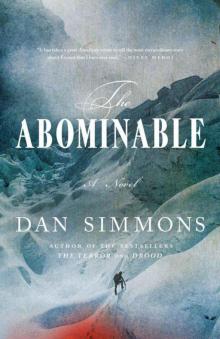 The Abominable
The Abominable The Death of the Centaur
The Death of the Centaur Hard as Nails jk-3
Hard as Nails jk-3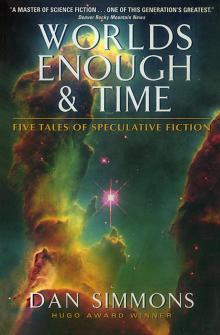 Worlds Enough & Time
Worlds Enough & Time Joe Kurtz Omnibus
Joe Kurtz Omnibus The Hyperion Cantos 4-Book Bundle
The Hyperion Cantos 4-Book Bundle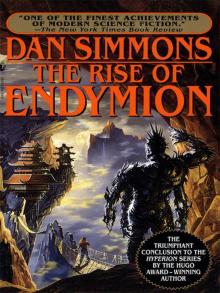 Rise of Endymion
Rise of Endymion Hard Freeze jk-2
Hard Freeze jk-2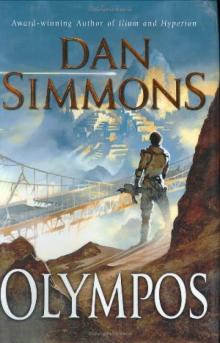 Olympos t-2
Olympos t-2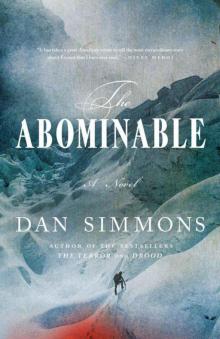 The Abominable: A Novel
The Abominable: A Novel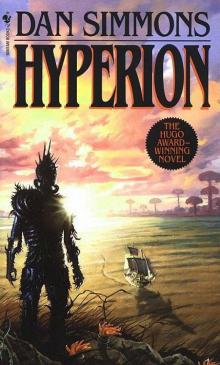 Hyperion h-1
Hyperion h-1 Remembering Siri
Remembering Siri Black Hills: A Novel
Black Hills: A Novel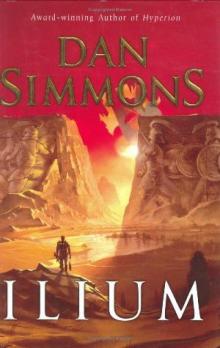 Ilium t-1
Ilium t-1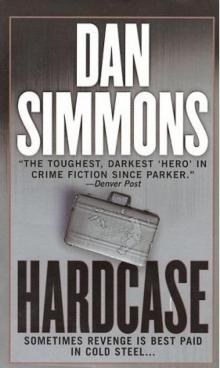 Hardcase jk-1
Hardcase jk-1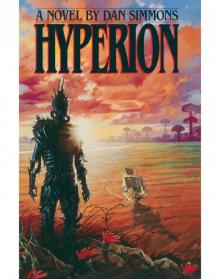 Hyperion 01 - Hyperion
Hyperion 01 - Hyperion